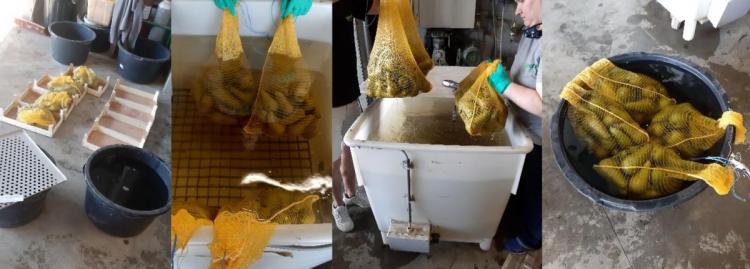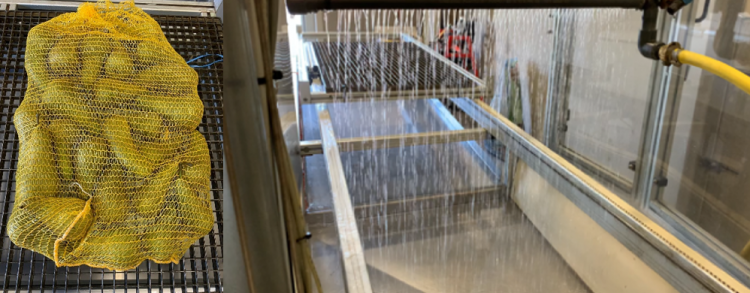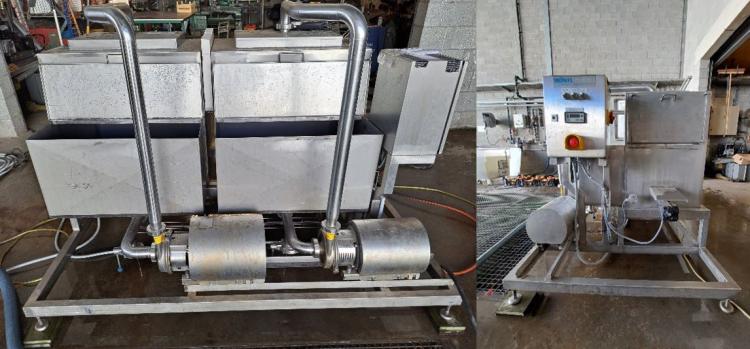In recent years, the cultivation of organic Conference pears has seen a significant increase. With the growing supply of organic Conference pears, the need for prolonged storage has become evident. To maintain the high quality of these pears throughout extended storage periods, alternative methods for controlling storage-related diseases are required. The application of hot water treatments presents a promising solution. While hot water treatment techniques have already been developed for certain apple and pear varieties, resulting in reduced storage rot, such techniques have not yet been established for Conference pears.
Recognizing the lack of prior knowledge and equipment among growers for implementing hot water treatments, they sought the expertise of pcfruit to explore potential collaboration in this field. The primary objective of this collaborative effort was to develop a hot water treatment specifically for Conference pears. This treatment aimed to diminish the incidence of storage-related diseases, thereby ensuring a longer storage and sales period for these high-quality organic pears. Moreover, this technique could be later applied to extend the storage of pears cultivated in accordance with the zero-residue principle.
Within the collaborative effort, involving growers and auctions, the hot water treatment technique was refined, considering factors such as temperature, contact time, and the type of application (dipping or showering) suitable for Conference pears.
Over two seasons, organic pears underwent various hot water treatment regimens to establish a viable treatment protocol. In the initial project year (2021), significant scab pressure was observed, resulting in scab infestations in most delivered fruits. The different hot water treatments demonstrated efficacy rates ranging from 70% to 90%. Furthermore, the impact of hot water treatments on the extent of scab infestations was assessed, resulting in a modest reduction, with only about a 10% decrease noted.
In the second year, no scab infestations were initially observed. After the hot water treatments, effect rates of up to 70% were reported. The results reiterated the slight reduction in scab infestation expansion due to hot water treatments.
Hot water treatments present a promising alternative for postharvest disease control in organic cultivation. Particularly in combating fruit rot, these treatments have shown effectiveness. The shower system yielded the best results at temperatures ranging from 48°C to 50°C, with treatment times between 60 and 120 seconds. However, it is advisable to conduct preliminary testing of these conditions to prevent adverse effects of the treatment such as burning.
Contacts: Tanja Vanwalleghem & Michelle Holtappels
Duration: 01/07/21 - 30/06/23
Funding: Vlaamse overheid en het Europees Landbouwfonds voor Plattelandsontwikkeling (ELFPO). www.vlaanderen.be/pdpo




